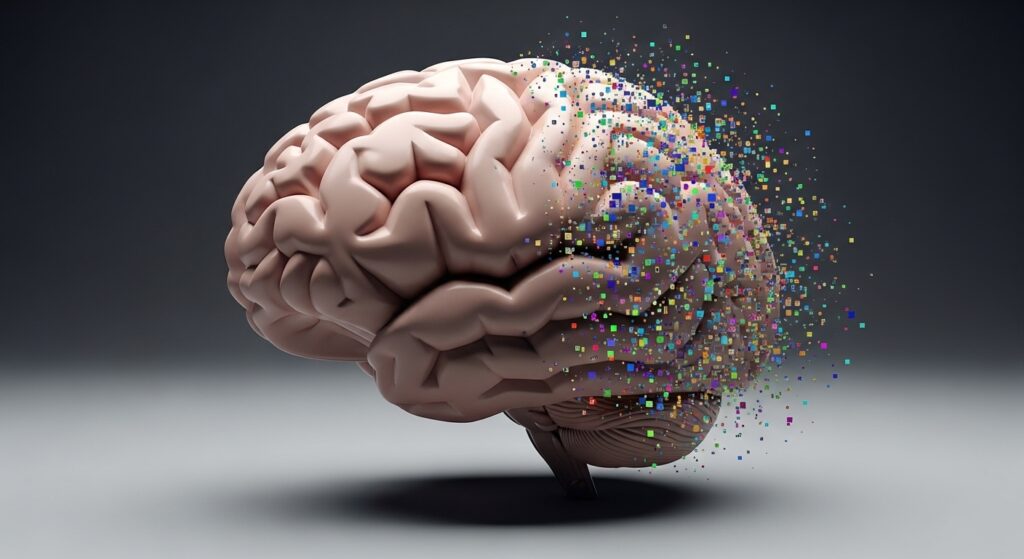When calculators became ubiquitous in classrooms, critics warned that mental arithmetic would decline. When GPS devices arrived, there was handwringing over humanity’s diminishing sense of direction. Now, artificial intelligence has sparked an even sharper debate: does relying on AI make us more stupid? It is a question not merely of technology but of cognition, culture, and perhaps even morality.
A Question of Cognitive Laziness
There is no denying that AI tools can outperform humans on many routine tasks: drafting emails, summarising documents, answering questions. To dismiss these capabilities outright would be as shortsighted as refusing to use a dictionary for fear of weakening one’s spelling.
Yet the worry is that AI’s convenience will breed cognitive laziness. In a recent experiment published by Stanford, students tasked with writing essays using ChatGPT produced content more quickly, with less effort — but when asked to defend their arguments without AI, they struggled to articulate them.
This suggests that while AI can aid productivity, it also risks displacing the intellectual engagement required for genuine understanding. As Nicholas Carr warned in The Shallows, our tools shape not just what we do, but how we think.
Memory, Maps and Mindware
History offers several instructive parallels. The use of GPS navigation has been shown to shrink activity in the hippocampus, the part of the brain involved in spatial memory. Studies in London’s taxi drivers, famed for memorising the city’s labyrinthine streets, revealed their hippocampi to be unusually well developed — until GPS became ubiquitous.
Similarly, researchers have found that heavy reliance on calculators correlates with weaker numeracy skills over time. Whether AI will atrophy more general intellectual muscles — critical thinking, creativity, synthesis — is still unknown. But the possibility deserves scrutiny.
On the other hand, few people today regret putting aside slide rules in favour of calculators. In fact, by freeing us from mechanical computation, calculators allowed us to focus on higher-level mathematical ideas. Might AI do the same, enabling us to think at a more conceptual level?
A Social Dimension
To frame the question solely in terms of individual cognition, however, misses the wider point. Literacy, too, arguably made people less able to memorise long oral narratives — but it also enabled the scientific revolution, modern democracies, and literature itself.
AI could be viewed similarly: it may erode some skills but expand others. The real risk may lie less in individual “stupidity” than in collective complacency. If AI centralises knowledge in fewer hands — corporate or governmental — it could weaken society’s capacity to question authority or innovate.
The Seductive Illusion of Competence
Perhaps the greatest danger is that AI gives the illusion of competence without understanding. In educational contexts, students using AI often produce superficially convincing essays but struggle when challenged to explain or extend their ideas.
This phenomenon is sometimes called “cognitive offloading”: delegating mental tasks to external tools. In moderation, offloading is efficient. But when it becomes habitual, people risk losing the ability to perform even basic reasoning unaided.
As one Oxford cognitive scientist put it, “It’s not what you delegate to AI that matters — it’s what you forget you ever knew.”
A Better Question: Does AI Make Us Smarter?
Rather than asking if AI makes us stupid, it may be more useful to ask under what conditions it can make us smarter. Tools do not make choices; users do. The printing press did not make people literate overnight; it required widespread education and access to books. Likewise, if AI is treated as a substitute for thinking, it may well degrade our faculties.
But if treated as an amplifier — used critically, with an awareness of its limitations — it could elevate human thought, just as microscopes expanded our vision without replacing our eyes.
Some schools are already experimenting with “AI literacy” curricula, teaching students how to use generative tools responsibly without letting them supplant independent reasoning. This, perhaps, is the path forward: not Luddite rejection, nor blind embrace, but deliberate integration.
A Closing Thought
Like all transformative technologies, AI carries both promise and peril. It can free us from drudgery and enable intellectual leaps — or it can lull us into mental torpor and conformity.
Whether AI makes us stupid depends less on the algorithms it runs than on the habits we form around it.
As Socrates feared when writing displaced oral culture: “They will appear to be omniscient but will generally know nothing.” Or, as one might say today: prompt wisely — or risk being out-thought by your own machine.
- ✍️ Opinion: AI Must Not Replace Humans
 We’ve all seen the movies — robots rising up, outsmarting their creators, and bringing the world to its knees. For decades, such scenarios have been dismissed as the stuff of science fiction. But what if we’re closer… Read more: ✍️ Opinion: AI Must Not Replace Humans
We’ve all seen the movies — robots rising up, outsmarting their creators, and bringing the world to its knees. For decades, such scenarios have been dismissed as the stuff of science fiction. But what if we’re closer… Read more: ✍️ Opinion: AI Must Not Replace Humans - OpenAI’s New ChatGPT Agent Can Control a Computer and Do Tasks For You
 When OpenAI released its first conversational chatbot, ChatGPT, in 2022, the world marvelled at its ability to compose emails, write poems, and answer questions. But the company’s latest offering — ChatGPT Agent — marks a more radical… Read more: OpenAI’s New ChatGPT Agent Can Control a Computer and Do Tasks For You
When OpenAI released its first conversational chatbot, ChatGPT, in 2022, the world marvelled at its ability to compose emails, write poems, and answer questions. But the company’s latest offering — ChatGPT Agent — marks a more radical… Read more: OpenAI’s New ChatGPT Agent Can Control a Computer and Do Tasks For You - How to Handle AI: Navigating the Legal and Ethical Frontier By Famewiretoday
 When artificial intelligence (AI) tools first emerged as more than just science fiction, few foresaw just how quickly they would permeate everyday life. Today, AI is no longer a niche fascination of technologists or a luxury for… Read more: How to Handle AI: Navigating the Legal and Ethical Frontier By Famewiretoday
When artificial intelligence (AI) tools first emerged as more than just science fiction, few foresaw just how quickly they would permeate everyday life. Today, AI is no longer a niche fascination of technologists or a luxury for… Read more: How to Handle AI: Navigating the Legal and Ethical Frontier By Famewiretoday - Does AI Make You More Stupid?
 When calculators became ubiquitous in classrooms, critics warned that mental arithmetic would decline. When GPS devices arrived, there was handwringing over humanity’s diminishing sense of direction. Now, artificial intelligence has sparked an even sharper debate: does relying… Read more: Does AI Make You More Stupid?
When calculators became ubiquitous in classrooms, critics warned that mental arithmetic would decline. When GPS devices arrived, there was handwringing over humanity’s diminishing sense of direction. Now, artificial intelligence has sparked an even sharper debate: does relying… Read more: Does AI Make You More Stupid? - China’s Billion-Dollar Push to Become an AI Superpower
 Artificial Intelligence (A.I.) is no longer just a Silicon Valley story — it’s also a Beijing story. Over the past decade, China has been quietly and aggressively investing billions of dollars into A.I., with a clear goal:… Read more: China’s Billion-Dollar Push to Become an AI Superpower
Artificial Intelligence (A.I.) is no longer just a Silicon Valley story — it’s also a Beijing story. Over the past decade, China has been quietly and aggressively investing billions of dollars into A.I., with a clear goal:… Read more: China’s Billion-Dollar Push to Become an AI Superpower



